CATEGORIES
Kategoriler
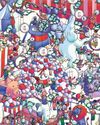
Robinhood
For helping Sherwood Forest help itself
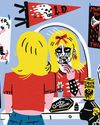
Liquid Death
FOR GIVING THE BRAND COLLAB NEW LIFE
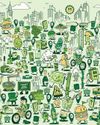
Wonder
FOR RETHINKING HOW FOOD DELIVERY WORKS, FROM THE BOTTOM UP

WAYMO
For steering robotaxis into the fast lane

Essilor Luxottica
FOR MAKING SMART GLASSES COOL

WNBA For posting up when it mattered
WHEN BASKETBALL STARS CAITLIN Clark, Angel Reese, and Cameron Brink rolled up to the Brooklyn Academy of Music last April for the 2024 WNBA draft, they signaled the arrival of a new generation of talent—and the league’s cultural ascendance.

Rocket Lab For keeping the space race competitive
YOU MIGHT NOT KNOW IT FROM the parade of SpaceX and Blue Origin headlines, but there's another player in the space-launch business—one that's considerably less flashy than the Elon Musk–and Jeff Bezos–owned companies, but gaining fast.

Duolingo
For finding a common language

Notion
FOR ORGANIZING THE TASK OF ORGANIZING

Bluesky
For freeing social media from the algorithm

FX
For serving up nourishing, original TV in an era of ultra-processed entertainment

Iceye
FOR SEEING THE WORLD, EVEN THROUGH CLOUDS

Anysphere
FOR OFFERING DEVELOPERS A CODING PARTNER THAT CAN SEE THE BIG PICTURE

Athletic Brewing
Just days before Athletic Brewing's newest busy season begins—Dry January—its primary brewery, in Milford, Connecticut, is shifting into overdrive, working to fill a 30-million-can stockpile to meet the coming month's nationwide surge in demand. A majority of these six-packs will vanish from shelves within the first two weeks of 2025.

Chainalysis
For bringing transparency to the crypto industry

good vibrations
Explore the season's best beach-ready looks in their element: Costa Rica's breezy Pacific shores
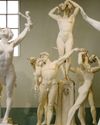
LOVE ETERNAL
The magic of Italy creates the setting for designer Athena Calderone to celebrate two major life moments
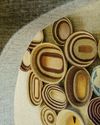
Safari at Sea
On the first sailing of ecotourism brand andBeyond's new cruise in the Galápagos, Chris Schalkx learns a lesson in conservancy

VIENNA WAITS FOR YOU
The charm of Austria's modest, beautiful capital has always been in its timelessness. But with provocative museums, unconventional food and wine, and a raft of clever hotels, the city is moving forward

HERE COMES THE SUN
Aussie designers Nicky and Simone Zimmermann share their favorite spots in Sydney

WHAT'S COOKING IN KIGALI
No longer just the gateway for gorilla trekkers, Rwanda's capital is fast becoming a hub of pan-African and global flavors
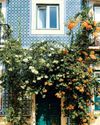
CRAFT WORK
Throughout Lisbon, Portuguese artisanship lives on through historic brands and inventive young designers

why we travel
EXPERIENCES THAT CHANGE THE WAY WE SEE THE WORLD
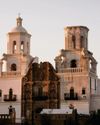
Roots Revival
In Tuscon, Betsy Andrews finds a community preserving its culinary future through ancient ways

go with the flow
On the central Oregon Coast, Alice Gregory finds easygoing small towns, forest-framed beaches, and an unhurried way of life refreshingly far removed from the world of hipsters and influencers

How to Attract the Best Talent
Most startups can’t compete on salaries or perks—so how do you hire amazing employees? Here’s how I did it, by optimizing for personal connection.

Confessions of a Former Retail Buyer
I used to place brands on Target shelves. Here's what founders always got wrong about retail—and how you can set yourself up for success.

Kyowa Leather Cloth
90 YEARS OF EXCELLENCE

Jade Group
AN INTERNATIONAL FASHION AND LIFESTYLE COMPANY

The Loricraft PRC6i record cleaning machine and the WallySkater v2.1 Pro
In my last Spin Doctor column, I gave an overview of my experiences cleaning records over the last 50-plus years and the advances in record cleaning technology over that time. My review of the HumminGuru NOVA ultrasonic record cleaner focused on that increasingly popular approach to record cleaning, using ultrasonic cavitation instead of scrubbing the record with a brush. But if there’s one thing I’ve learned in that half-century of playing around with audio gear, it’s that it can be a mistake to embrace a new technology just because of its newness, dismissing what came before as obsolete. The vinyl record itself is a good example of a technology discarded as obsolete, then embraced again by new (and old) generations. You can add vacuum-tube amplifiers, analog tape, and much else in our hobby to that list.